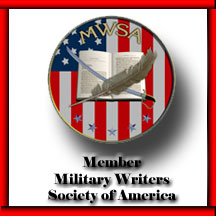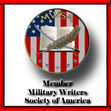|
The truck lurched off into the twilight, and we gathered in the road, eleven recruits in the last week of Army basic training. Self, the squad leader, handed me a map and compass. "You get this land navigation stuff, right, General?" I hated the nickname, but it was my own fault. After years of high school ROTC, from day one in the real Army I acted like I knew everything the other recruits were struggling to learn. Everything except when to shut up. I spread the map on the ground. As men gathered around, I oriented myself on the terrain. "We’re here," I said, pointing. "We need to get there." I pointed again. Folding the map, I used an edge as a straight line between spots, about 14 grid squares—8.5 miles—apart. I laid the compass along this line, turned the map until the arrow settled. “Azimuth 32 degrees," I said. A little east of due north. “That way.” "Let's go," said Self, and we moved into the woods. Soon we came to a clearing; as the point man plunged ahead, I called "Halt!" We’d been trained never to cross open spaces without checking the far side. "Might be Aggressors over there," I said. Armies train to re-fight their last war; a few years earlier, in Korea, many US units had been cut off by a surprise Chinese offensive. Soldiers survived in small groups that stealthily picked their way back through enemy lines. That was our exercise: Escape from behind “enemy lines” by applying land navigation techniques. Barring our way were "Aggressors"—GIs in distinctive uniforms. They carried a license to be brutal. Anyone caught went to a kind of “training” POW camp; Aggressors wouldn’t kill or maim us but they could do almost anything else. "Someone should recon the far side," I said. Self glanced around. "You go," he said. He took the map and compass and I low-crawled across the clearing, edging into the woods, listening and looking. When I was sure that it was safe, I walked back. The grove was empty. I searched quietly, listening, but my squad was gone. Captured by Aggressors, I assumed, wondering why I’d heard nothing. I was alone in a wilderness of rattlesnakes, mountain lions, coyotes and 200 Aggressors. I had no weapon, no compass, no map, no food. Fighting panic, I took several deep breaths, then sat down and went through my pockets, as my dad, a Scoutmaster, had taught me. I had a folding knife, a handkerchief, matches, a full canteen and a poncho secured with a bootlace. Waiting for darkness, I told myself that I would be fine if I didn’t surrender to the terror within me. When stars became visible, I used the Big Dipper to locate Polaris, the North Star. My azimuth lay just right of that, a hair east of north. I did the math in my head: I had to cover 8.5 miles. My stride, I knew from high school, averaged 30 inches, 2.5 feet, so forty paces was about 100 feet. I set out; after 120 paces—a hundred yards—I stopped to listen and tied a knot in the bootlace. A mile was about 18 knots; at 150 I should be near my objective. A full moon rose, casting eerie shadows. Nearby a coyote howled. Then another and another. Chills tap-danced up my spine. Would coyotes attack a lone man? I didn't want to find out. As I hiked the hills flattened; pine and redwood gave way to scrub oak, chaparral and sage. I avoided game trails, detoured around clearings, trail junctions and other danger spots, always returning to my azimuth. When I’d tied 17 knots, I came to a road and stopped to listen. Silence. Halfway across I heard an engine’s muted throb. A shaft of light stabbed the brush. I went flat under a sticky canopy of chaparral as a darkened jeep rolled by. Laughing, Aggressors probed the hillside with a searchlight. I had no watch, but the moon's arc gave me a sense of time. On and on I went, counting paces, tying knots—until a sudden breeze brought the odor of burning tobacco. I knelt on rubber knees, scanning the darkness, hearing myself breathe, listening to the kettledrum in my chest. I heard the clatter of metal on metal, the murmur of voices. A man screamed—one long, continuous cry. Then raucous laughter. My blood ran cold. I crept forward. The silence was shattered by the ear-splitting yammer of a machinegun. Muzzle flashes silhouetted nearby gunners in ridged Aggressor helmets. I went flat, stopped crawling. Suddenly it was quiet. I heard the clink of belted cartridges: a gunner reloading. A dark shape left the gun pit, stopped near where I lay. A sloshing sound, then the acrid stench of urea filled my nostrils. When the gun resumed its stuttering roar, I crawled as fast as I could, skinning elbows and knees on my way to a copse of stunted pine. Shaking, I stood, then edged forward. To my left was a barbed wire enclosure with guard towers, searchlights and Aggressors screaming obscenities at men doing sit-ups and pushups in a muddy quagmire. In movies this is where the hero rescues his buddies. I never considered it. Unarmed, alone and scared, I felt that I’d be lucky to save myself. Circling the camp, I crept between two more gun pits. A cigarette glowed in the dark. I smelled after-shave. When the firing stopped, I heard the distinctive click of red-hot metal cooling—the gun barrel. I crept toward a rise until a shadowy man and leashed dog appeared on the crest. The shepherd barked, rousing a canine chorus behind me. I froze, praying that they wouldn't catch my scent. I moved left, upwind, bent double, running hard. When the camp was far behind me, I found Polaris and resumed my course. After a long while I topped a grassy slope. The low moon lit a dirt track. I went prone in the tall grass as I fingered my bootlace, counting: 147 knots. To my left, near the track, stood a large tent with a jeep in front, hood raised. I crept forward until I could read the white stenciling on its bumper: HQ-9-3. HQ Company, Ninth Battle Group, Third Brigade. My outfit! A pair of legs protruded from the jeep’s hood. Then a trunk and head emerged from the open engine compartment. The man turned — and jerked backward in fright when he saw me. "Where the hell did you come from?" said the sergeant. "You scared me half to death!" I held the flashlight while he attached wires to the jeep's generator. He started the engine and the tent glowed. "There’s coffee inside," he said. "A debriefing team will be along soon." Before midnight I’d showered and was asleep in the deserted squad room. The rest of my squad arrived at sunup, exhausted, filthy with mud, cursing the Aggressors. Nobody said a word to me about the preceding night. After graduation we dispersed to units and schools worldwide. Along with others from my company, but no one from my squad, I went on for advanced infantry training. I rarely thought about that night until an afternoon in 1967 when I encountered a captain outside the Ft. Benning Officers Club. There was something familiar about him; as he returned my salute, I glanced at his name tag. We turned back at the same time. "General!" he said. It was my old squad leader, Self. Over beer we reprised our respective careers. He’d gone to OCS, made captain three years before and was headed for Vietnam. I’d finished my first hitch as a sergeant, left the Army, returned three years later as a private. Now, just back from Vietnam, I was a second lieutenant. He asked what OCS class I attended; I said that I never went; I was commissioned from the ranks. In Vietnam. "A battlefield commission?" he gasped. “The Army still does that?” I nodded, yes, then confided ambivalence about my new status. War had altered my perspectives; I wasn't sure if I was up to an officer’s responsibilities. Finally we talked about Basic Training. "Some of us were a little worried when you didn't turn up at the Aggressor POW camp," Self said. "How did you get back to the barracks?" "I found the objective and the debriefing team brought me back," I replied. Self stared, incredulous. "They didn’t get you? You made it through alone?" I nodded, yes. “I guess we underestimated you,” he sighed, then finished his beer in one long swallow. "It was the swagger stick," he said. "At the Open House." Because of my ROTC experience, I’d been put in charge of a drill team; we strutted our stuff in front of hundreds of visiting family members. Swagger stick tucked under my arm, I was a celebrity for ten minutes. But now I was mystified. "What about it?" "The stick was the last straw. That's why we ditched you." It had never occurred to me that I’d been abandoned. "What?" "You were like Joseph with his coat of many colors. You knew everything better than anyone else. And then that stick. You were just a kid—what, 18?" “Seventeen.” "And so full of yourself—insufferable! You crawled off and someone said, 'We've got the map and compass, let's split.’ We thought you’d get caught and the Aggressors would fix you good. Couple of times before, we’d talked about giving you a blanket party. This was better." Throw an Army blanket over someone so he can’t identify the men kicking and punching him. That’s a blanket party. I didn’t know what to say. We shook hands and went our separate ways. And when I calmed down, I realized that Self was right. My first months in uniform, a soft, baby-faced, five-foot recruit in an Army of tough six-footers, I was terrified of failure. How could I compete with bigger, stronger men? So I played know-it-all, too dumb to know how others saw me, insensitive to their feelings, unable to imagine that they could feel just as scared and inadequate as me. Performing under pressure on that night alone in the wilderness did wonders for my self-confidence: When I left Ft. Ord, I finally felt worthy of my uniform. At 17, Joseph flaunted his gifts and his ten jealous brothers sold him into slavery. When he realized his shortcomings, he forgave them and accepted his ordeal as necessary to prepare the way for his family's survival. I forgave my Army buddies, who, like Joseph’s brothers, forced me to prove myself. And long years later, reading the Bible, I discovered the importance of names. In Hebrew, Joseph means "to put in." He put all 70 Hebrews into Egypt. Moses means "to draw out." He drew the Hebrews, by then a nation, out of slavery. Out of Egypt. Could it be only coincidence that, at that turning point in my life, when I sought to find myself, the man who revealed my secret past, pointing the way to understanding, acceptance and self-confidence, was named Self? © 2001 Marvin J. Wolf
0 Comments
Your comment will be posted after it is approved.
Leave a Reply. |
FROM Marvin J. Wolf
On this page are true stories, magazine articles, excerpts from books and unpublished works, short fiction, and photographs, each offering a glimpse of my life, work and times. Your comments welcome. © Marvin J. Wolf. All rights reserved. Archives
October 2023
Categories
All
|
|
|
Member, Military Writers of America
|
Website © 2016 Marvin J. Wolf. All rights reserved on website design, images and text. ꟾ Updated regularly.
Design by Andesign. |
Professional Reader, NetGalley
|

 RSS Feed
RSS Feed
